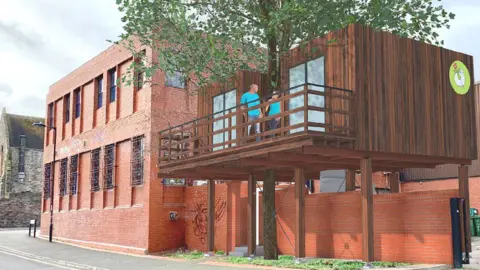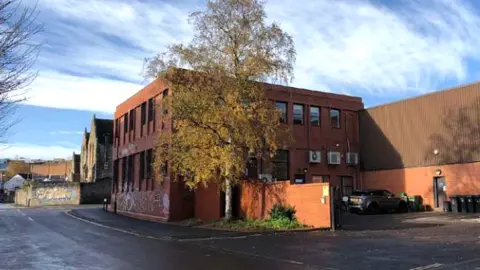Bristol homeless charity plans 'eco pods' for tourists
 White Design
White DesignA charity for homeless people in Bristol is planning to build accommodation for visitors to the city as a new means of raising funds.
Emmaus Bristol, which helps people get off the streets and back into work, has applied to build two so-called "eco-pods" at its base in St Pauls.
They will be made out of wood and straw and rented out to tourists.
The pods would be managed and maintained by people who were formerly homeless.
Emmaus Bristol offers people a place to live and teaches them new skills in order for them get back into work.
If planning permission is granted in February the charity says it will fill the pods with furniture restored by the people it supports - which it calls companions.
The chief executive of Emmaus Bristol, Jessica Hodge, said: "As most of our social enterprise income is through retail, we wanted to try something new to provide different kinds of work experience and also help us diversify our income as retail is pretty volatile at the moment.
"We hit on the idea of doing the holiday pods because we already have the customer service and display skills needed, as these are the same skills companions use in our shops.
"With homelessness rising we need to do all we can to sustain and expand our work."
 White Design
White DesignArchitecture firm White Design composed plans for the pods, which will be built on stilts around a birch tree on the site.
Director Craig White said: "The idea is that you can stay in a super low-carbon pod made of timber and straw in the middle of one of the most vibrant cultural quarters in the UK.
"We would use wheat straw, which is a good insulator and as it grows it consumes carbon dioxide. So by building in this way we are actually banking carbon."
